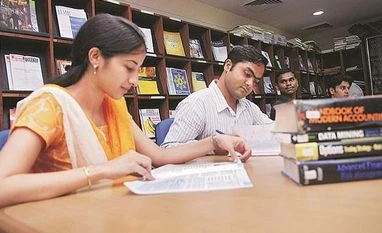The new education policy recently introduced by the government gives impetus to learning of foreign languages, half of which are European, and therefore, the future for exchanges between India and Europe is brighter than ever, Foreign Secretary Harsh Vardhan Shringla said on Monday.
Delivering the closing address of the celebrations of the Day of Languages organised by Mayo College in association with the Goethe Institut, Shringla said the most defining feature of the human civilisation is undoubtedly the ability to communicate through languages.
A key element that intertwines Europe and India is, in fact, languages, he said.
"India and Europe are both linguistically diverse lands. India alone has 22 scheduled languages in its Constitution and over a thousand mother tongues. India is home to various language families," Shringla said.
Besides the Indo-European language family, the Dravidian, Austric and Tibeto-Burman languages, among others, also call India their home, he noted.
The European Union for its part has 24 official languages and numerous other languages and dialects, he said.
More From This Section
In fact, this diversity is also found in sign languages, representing the truly inclusive nature of the spoken word, he said.
"On the other hand, ancient Indian literary traditions have sparked much interest beyond India's borders in recent times, and we see greater interest in establishing departments and chairs for Sanskrit and other major Indian languages in foreign universities," Shringla said.
The Indian diaspora goes around the world, they are creating the demand for learning Indian languages in foreign educational institutions, he said.
"Perhaps you are aware that the New Education Policy recently introduced by the Government of India gives impetus to the learning of foreign languages, half of which are European languages, that is, French, German, Spanish and Portuguese. The future for exchanges between India and Europe, therefore, is brighter than ever," Shringla said.
)